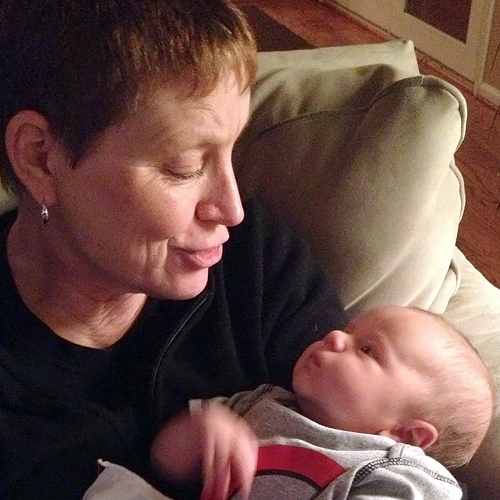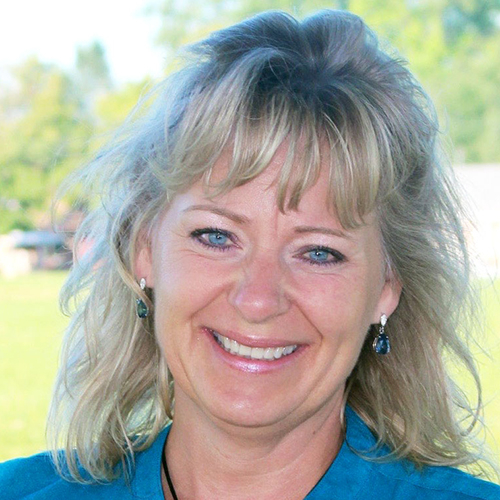 Infant & Child Health & Development Online Course(s) & Continuing Education
Infant & Child Health & Development Online Course(s) & Continuing Education
Access the latest clinical skills and research for Infant & Child Health & Development for Neonatology professional training. These Infant & Child Health & Development online courses provide practice-changing skills and valuable perspectives from leading global experts. This Infant & Child Health & Development education has been accredited for a variety of CEUs / CERPs and can be accessed on-demand, at your own pace.


Dr. Hawes provides clinical services in the Neonatal Intensive Care Unit and at the Perinatal and Postpartum Clinic at the Center for Children and Families at Women & Infants Hospital, where she treats women and their partners experiencing perinatal mood and anxiety issues. Treatment includes individual and family psychotherapy. She is an assistant professor (adjunct) in the Department of Pediatrics at The Warren Alpert Medical School of Brown University. She trained in adult psychiatry and mental health at the University of Rhode Island and is board certified in adult psychiatric-mental health advanced practice nursing. Her research, clinical work, and lectures focus on stress and trauma related to the premature birth experience. In addition she studies the relationship between nursing practice and parent and infant outcomes; nurse-patient interaction; the healthcare work environment and provider and patient outcomes; and the epigenetics of stress. (https://vivo.brown.edu/display/khawes).
Classic animal studies have shown that maternal care of rat mothers e.g. licking and grooming and arched back nursing, impacts offspring outcomes such as behavior, development, and stress regulation. These outcomes persist over subsequent generations. Epigenetics, the study of how environmental influences affect gene expression, mediates these effects. In this session we will discuss and explore how similar epigenetic mechanisms in humans possibly relate to the protective effects of breastfeeding and maternal tactile stimulation on infant stress reactivity.

View Details / Enroll

Foetal Programming and the Impact of Stress

Dr. Ruth Oshikanlu MBE is a multi-award winning nurse, midwife and health visitor. A nurse entrepreneur, consultant, leader and parenting expert, she is passionate about supporting vulnerable children and their families to reduce health inequalities and improve their life outcomes. Her previous roles include: HIV specialist midwife, Family Nurse at one of the first pilot sites of The Family Nurse Partnership intensive home visiting parenting programme for vulnerable families, and Nurse Leader of The Lewisham Young People’s Health and Wellbeing Service.
Ruth is a Pregnancy Mindset Expert and supports pregnant women who have had assisted conception or previous pregnancy loss. She is the author of Tune In To Your Baby: Because Babies Don’t Come with An Instruction Manual.
Ruth is a Queen’s Nurse, Fellow of The Institute of Health Visiting, Royal College of Nursing and The Royal Society of Arts. She is the recipient of several national healthcare and business awards; a regular columnist and has published several feature articles in numerous national nursing and healthcare journals.
Ruth was appointed a Member of the Order of the British Empire (MBE) in the New Year 2019 Honours List for being an Ambassador for the Health Visiting Profession and for services to Community Nursing, Children and Families. She is a Churchill Fellow and was awarded an honorary doctorate degree from London South Bank University in November 2019.
Topic: Foetal Programming and the Impact of Stress - [View Abstract]
Foetal programming refers to changes in the environment in utero during specific critical or sensitive periods and the long-term effect on the child. Maternal stress and anxiety during pregnancy represents an important aspect of the intrauterine environment and can alter the development of the foetus and child and can influence many, if not all, developmental outcomes. The presentation will explain what foetal programming is, why it matters and discuss how stress impacts it. It will discuss the importance of building therapeutic relationships with clients and their families. It will conclude with the tools and strategies to equip professionals who work with women, children and their families to better support them in pregnancy and the first three years of life.

Interoception: Beyond the Homunculus....The Real Sixth Sense and Its Primary Function as Sensory Input to the Autonomic Nervous System

Michelle has been a pediatric neurodevelopmental Occupational therapist specializing in precrawling infants for over 26 years. She has specialty certifications and training in lactation, manual therapy, and pre and peri natal psychology. Michelle has specialized in optimal cranial nerve function and oral restrictions, with an emphasis on infant movement, innate biological imperatives and human potential, providing novel curriculums, support and resources for both professionals and parents. She enjoys collaborating and working in teams for babies and families going through the tethered oral tissues release process.
Topic: Breastfeeding and Cranial Nerve Dysfunction – the what, who and why of Cranial Nerve Dysfunction in the newborn to precrawling baby - [View Abstract]
Topic: Compensatory vs Novel Movements: 3 Keys for Babies With Tongue, Lip and Buccal Restrictions - [View Abstract]
Topic: Interoception: Beyond the Homunculus....The Real Sixth Sense and Its Primary Function as Sensory Input to the Autonomic Nervous System - [View Abstract]
Topic: The Vagus Nerve: Branchial Motor / Special Visceral Efferents: The Pharynx, Larynx, Soft Palate and one tiny tongue muscle - [View Abstract]
Topic: TummyTime!™ : A Therapeutic Strategy for Parents and Babies - [View Abstract]
Interoception is a term used to describe our nervous system's awareness of the sensations from the gastrointestinal and visceral system, as well as the primary sensory part/input to baby's Autonomic Nervous System. ANS function and regulation underlay all automatic processes of the body, from heart beat to breastfeeding and digestion function, as well as maintaining a calm state in order to engage in social interaction or to transition easily in and out of sleep. More simply put, interoception is "feelings from the body". In addition to visceral information, interoceptive pathways carry information related to affective touch, itch, temperature and pain and are delivered to a separate area of the brain, the insular cortex, which also contains a map of the body, similar to the well known homunculus. Interception plays a large role in dynamic equilibrium and autonomic regulation of tissues of the body. Interoceptive information and the processing is the basis of all important activity to optimize energy utilization. This system is often compromised in babies who present with complex oral dysfunction, tethered oral tissues, postural asymmetries, fussiness, gas, reflux or other dysregulation in function. How babies feel is mirrored in how they function, compromised function equals compromised interoceptive processing. This talk covers the basics of this system and practical clinical applications for precrawling babies to optimize neurodevelopment and breastfeeding abilities.

View Details / Enroll

Is Sleep Really A Necessity? Nighttime Parenting With Multiple Infants

Karen Kerkhoff Gromada, MSN, RN, IBCLC, FILCA has been an IBCLC since 1991 and has worked as an IBCLC in both private practice and hospital settings. She also has experience as an adjunct clinical instructor for the University of Cincinnati College of Nursing and as a staff nurse in labor and delivery, childbirth education and postpartum discharge nursing care. Gromada was accredited as a La Leche League (LLL) Leader in 1975 and formed the first LLL group for mothers of multiples after the birth of her twin sons. The experiences of the group’s mothers provided the basis for her book Mothering Multiples: Breastfeeding and Caring for Twins or More. Her numerous articles and chapters about breastfeeding multiples have been published in professional and lay publications. A former International Lactation Consultant Association (ILCA) president (1994-96), she was designated Fellow of the International Lactation Consultant Association (FILCA) in 2008.
Sleep deprivation and disruption of an individual’s circadian patterns in the postnatal period are frequently cited as contributing factors in the development of postpartum depression, anxiety (PPD&A) or postpartum post-traumatic stress symptoms (P-PTSS). These factors are increased for the birthing parent of twins, triplets or more, who is more likely to bring two or more newborns home after experiencing perinatal complications and related interventions, and infants’ preterm birth, low birth weight and other complications, often resulting in neonatal intensive care unit stays. Even for a relatively ideal multiple pregnancy and birth, caring for two or more newborns – each having as many needs as any single-birth newborn – round-the-clock parenting generally leads to profound and often long-term sleep deprivation. When significant sleep deprivation affects a parent’s daytime behavior, all family members are affected. Yet current “safe sleep” recommendations or nighttime strategies promoting better sleep for parents and a single infant, including safer bedsharing techniques, are more difficult logistically to implement. These recommendations and strategies may also be less safe to implement with multiple infants. This session will examine the factors contributing to disruptive sleep for parents of multiples and develop strategies that meet both infants and parents needs for adequate sleep.

Laying the Foundation for Self-Discipline With Infants and the Very Young

Ruth Anne Hammond is the author of Respecting Babies: A Guide to Educaring for Parents and Professionals (Zero to Three, 2019), and is a consultant for infant/toddler care and education. Having been mentored by Magda Gerber, founder of Resources for Infant Educarers, she teaches and mentors parents and professionals in the US and abroad. She served on RIE’s board of directors for many years and was President from 2006 through 2011. She was on the faculty of Pacific Oaks College & Children’s School as both a member of the Senior Adjunct Faculty and a Master Teacher in the Infant/Toddler-Parent Program for 17 years. She is currently on the board of directors of Families Forward Learning Center in Pasadena, CA and serves as chair of the Programs Advisory Committee. Ms. Hammond earned a Bachelor of Fine Arts in Dance from Southern Methodist University and a Master of Arts in Human Development, specializing in Infant/Toddler Studies and Leadership in Education, from Pacific Oaks College. She is a longtime member of psychologist Allan Schore’s interpersonal neurobiology study group.
How a child is cared for in the earliest months and years of life, pre-birth to three or so, can foster the implicit development of what will be seen as self-discipline in the preschool years and later. In this workshop, participants will have the opportunity to connect the dots between respectful, attuned caregiving, self-initiated activity, authentic communication and the development of self-regulation, the necessary precursor to healthy self-discipline.
We will explore the basics of Dr. Allan Schore’s Regulation Theory, which integrates Bowlby’s classical Attachment Theory and modern interpersonal neurobiology, as well as practical ways to put it into practice in the home or anywhere infants and young children are being cared for. The Educaring Approach, which will be referred to, offers replicable strategies and tools for building the secure relationships that form the basis for children to develop into to peaceful, cooperative and confident people who exhibit the benefits of self-discipline.

Movement: The Brain's Power Boost for Learning

Carlota López-Peredo has a Bachelor’s degree in Biochemistry and Special Needs Education from Madrid Complutense University. She is an inspirational trainer, the owner of a clinic in Madrid, and the Program Liaison for Breakthroughs International. As a certified International Faculty for both the Brain Gym® and Movement Based Learning programs, Carlota provides experiential training worldwide for educators, families, caregivers, developmental specialists, and others, providing a large range of tools focusing on early intervention, developmental delays and disorders, as well as learning disabilities.
After working in the classroom for five years, she opened a clinic for developmental delays and learning difficulties. At her clinic, parents appreciate her commitment, connection with the children and professionalism. In her classes, her students enjoy the passion she communicates when teaching, and her ability to make learning a fun process. Carlota's passion is helping families and educators using designed movements to enhance the individual developmental foundation and reach a higher functioning level.
This talk will focus on the Movement Based Learning (MBL) program and how it can be used by healthcare professionals, as well as families, to support a healthy and efficient early childhood development. The MBL designed movements can be used as an effective tool to help develop motor, cognitive, and emotional skills in children, supporting them to successfully navigate through the developmental milestones. Practical MBL tools will be shared with the participants that can be implemented in the children's daily lives to help them reach their full potential.


Tracy Cassels, PhD is the founder of Evolutionary Parenting, a website focused on disseminating the research on parenting. In addition to her writing, she provides courses and individual help to families around the world on myriad parenting issues. She has previously worked in non-profit and policy positions in the areas of child development and education and is currently an advisor to the Children’s Health and Human Rights Partnership in Canada. She has a B.A. in Cognitive Science from the University of California, Berkeley, an M.A. in Clinical Psychology from the University of British Columbia, and a Ph.D. in Developmental Psychology, also from the University of British Columbia. She has appeared in numerous mainstream media sources such as the CBC, Psychology Today, The Globe and Mail, Belly Belly, and more. She lives in Prince Edward County, Ontario, Canada with her husband and two children.
Sensitive or orchid individuals make up about 20% of the population, children included. These individuals face what we call ‘differential susceptibility’ based on their environments, child-rearing included. In environments that are not well-suited to their sensitive nature, they face higher rates of disease, mental health disorders, and other negative outcomes. In contrast, when in environments that are supportive and well-suited to their nature, they thrive and can have outcomes that surpass those of their less sensitive counterparts. The problem for most parents is that the advice and techniques common in our culture are at odds with what these children need, putting parents in a difficult spot of either not knowing how to parent such a child (but knowing the advice seems wrong) or giving in and finding themselves in ongoing struggles with their child. This talk will review the research on sensitive/orchid children and how we can use this information to help families identify parenting methods and techniques in the areas of general parenting, sleep, child care/schooling, and discipline that will provide the type of foundation these children need to thrive.


Ben Kingston-Hughes is an international keynote speaker, author and multi award-winning trainer. He is also the Managing Director of Inspired Children and has worked with vulnerable children across the UK for over 30 years. He has appeared on television several times working on a variety of children’s projects and his distinctive blend of humour, neuroscience and real-life practical experiences have made his training invaluable for anyone working with children. His new book, “A Very Unusual Journey into Play.” is now available.
This fascinating session explores the vital role of Play in developing and growing children’s brains. The session takes delegates on a neurological journey into the child’s brain, exploring the profound importance of play for brain growth, wellbeing and even life expectancy. Looking at a range of neurological studies, Ben Kingston-Hughes makes a compelling argument that Play is not merely an optional extra for a child but a fundamental building block for every aspect of their well-being and development. This session is entertaining, thought-provoking and might just help us build the brains of the future.

Rhythmic Movements: A Second Chance to Integrate Primitive Reflexes

Experience lively and informative workshops presented by Liz Jones-Twomey, a Blomberg International Rhythmic Movement Instructor/Consultant, ENVoY Classroom Management trainer, and recently retired elementary school teacher from the WRDSB in Canada - with over 33 years of experience! Liz has devoted a great deal of time and effort to expanding her knowledge of “brain-based” movement over the course of her career.
Liz has been a featured speaker on 4 continents and is co-creator of the following multiple award-winning movement-to-music CDs: “Catch a Brain Wave Fitness Fun;” “Smart Fitness, Smart Foods;” “Baby Connections Song Time;” and “Wiggle Jiggle Fitness Fun.” Liz has been honoured with the prestigious International Teaching Through Movement Award for her work with Brain Gym® and ‘best practice’ teaching strategies. She was presented with the W.T. Townshend Award of Excellence for her innovative teaching style, and is also a recipient of the Speedo National Fitness Instructors Award.
Liz recently participated in an 8-week research study with Queen’s University, ON , Canada, examining self-regulation and reflex integration with her Rockin’ Reflex Video Program for children ages 4 to 6 years old. This study demonstrated at a highly significant statistical level , that the rhythmic movements practiced in the Rockin' Reflex videos helped to integrate students' primitive reflexes and improved Self-Regulation skills.
Liz’s enthusiastic presentation style provides for plenty of highly engaging, hands-on, practical experiences for participants, as well as ideas about reflex integration and songs and movements that can be implemented immediately.
Primitive reflexes are necessary for an infant’s survival. These reflexes typically become integrated in the first year of life as the child instinctively practices rhythmic movements. If these reflexes do not become integrated into daily functioning, they may impede the development of more mature reflexes, causing difficulties in self-regulation, social, emotional, and academic aspects of a child's life. Studies have illustrated that rhythmic movements can give a child a second chance to integrate their primitive reflexes (Blythe, 2005; Grzywniak, 2017).
Liz Jones-Twomey, along with her musical partner Ron Hiller and researcher Susan Overvelde, conducted an eight-week research study with children ages 4 to 6. This study supports the idea that the primitive reflexes of school aged children can be integrated by practicing rhythmic movements which mimic those infants naturally do. The Blomberg Rhythmic Movements and developmental movements practiced in the Rockin’ Reflex videos used in the study, helped to integrate student’s primitive reflexes and improved Self-Regulation skills.
There was a statistically significant improvement in post-intervention primitive reflex scores, suggesting that the rhythmic movements practiced in these videos helped integrate children’s primitive reflexes. There were also statistically significant improvements in behavioural, cognitive, and emotional self-regulation scores, suggesting that by integrating primitive reflexes, children were able to self-regulate better.

Scent-Sational Connections: The Role of Olfaction in Development

Gretchen Becker Crabb is an Occupational Therapist, Licensed Professional Counselor, and Endorsed Infant Mental Health Therapist. She is also a Certified Lactation Counselor, La Leche League Leader, and Brazleton Newborn Observation (NBO) trainer.
Gretchen’s passion is rooted in fostering lifelong relationships and connection through co-regulation in pregnancy and beyond. Her unique approach to lactation support and therapy is rooted in culturally attuned sensory, somatic, and trauma-informed mental health techniques.
Gretchen owns and operates a private practice in Madison, Wisconsin. For 21 years, she has provided developmental, trauma, feeding, and attachment support for tiny humans and their caregivers in birth to three, preschool, private practice, and peer group settings. Gretchen is an international speaker, reflective supervisor, and infant mental health consultant. In these roles, she offers compassionate, experiential, and reflective holding spaces for professionals. She is a proud United States Air Force spouse and mother of three boys.
Topic: Infant Mental Health: What Does It Look Like in Practice? - [View Abstract]
Topic: Scent-Sational Connections: The Role of Olfaction in Development - [View Abstract]
Topic: Sensory Processing and Breast/Bodyfeeding: Using Co-Regulation to Support the Feeding Relationship - [View Abstract]
Topic: Vestibular Processing: Using the Sixth Sense to Support Lactation and Parent/Infant Relationships - [View Abstract]
Though so obvious, the sense of smell is quite integral to well-being and human connection. As the loss of smell has been highlighted as one of the main symptoms of COVID, it invites a deeper understanding of the functional impacts of olfactory differences in children and caregivers. In this presentation, we will learn about the cultural history and neurological basis of olfaction. We will explore how smell plays a role in feeding, interpersonal relationships, and safety as well as olfactory strategies to promote physical health and co-regulation.
IMPORTANT: In this presentation we will do experiential work, so please have a journal, the following scents and food available:
One Citrus Scent (e.g. lemon, lime, orange)
One Woodsy/Earthy Scent (e.g. leaves, rocks, soil)
One article of clothing worn by someone you are close to (e.g. spouse, child, close friend, parent)
Carrot or other raw vegetable to eat













